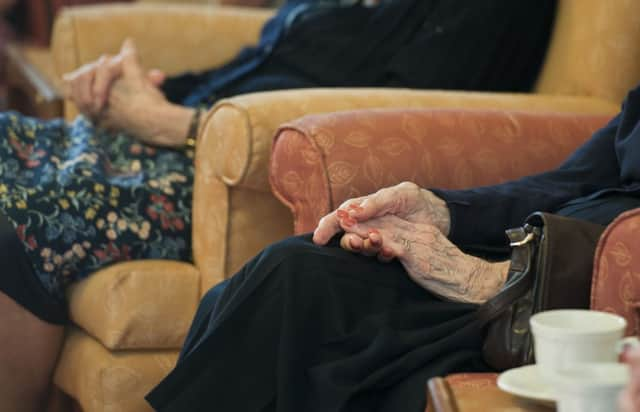Lyndsay Buckland: More has to be done on dementia


The fear lies in what dementia takes away: it removes people’s memories and robs families of loved-ones in their final months or years of life.
In many ways, the condition has the greatest impact on the families, but that does not detract from the suffering of the individual who is powerless as the life they knew gradually slips away.
Advertisement
Hide AdAdvertisement
Hide AdThe fear of dementia is not helped by reports such as that released this week by the Mental Welfare Commission of Scotland, flagging up the health service’s failings in caring for these vulnerable patients.
The report revealed a catalogue of poor performance by units tasked with looking after those with severe dementia who can no longer be cared for in the community.
These patients have complex needs, often experiencing dementia alongside other serious illnesses which on their own would be more than enough to try to cope with.
While some units were going to great lengths to improve the experience of these patients, the general picture was far more depressing.
Perhaps the most shocking is that more than half of patients had not even been outside in the month before inspectors visited – even though it was summer.
That such a basic human right was denied to them – and one which, let’s face it, does not cost the National Health Service a penny – is appalling. While I am sure there may be challenges in allowing some of these patients access to outdoor space, it is such a basic pleasure that every effort should be made to accommodate it.
It seems that in some cases, patients did not even have access to a window to look outside. Maybe this would just have made their incarceration even more unbearable.
The report also voiced concerns about high levels of use of psychoactive drugs, often used to help manage more challenging behaviour and aggression. Such drugs, the commission made clear, should be the last not the first resort in managing patients.
Advertisement
Hide AdAdvertisement
Hide AdThe majority of the units are staffed by people with the best intentions and with a genuine desire to help their patients. But as the population ages and cases of dementia increase, these levels of staffing are simply not high enough and those left to pick up the pieces often feel despair that they cannot do more.
Health secretary Alex Neil said the report’s findings were a “disgrace”. He must now take action to address how we are failing these patients.